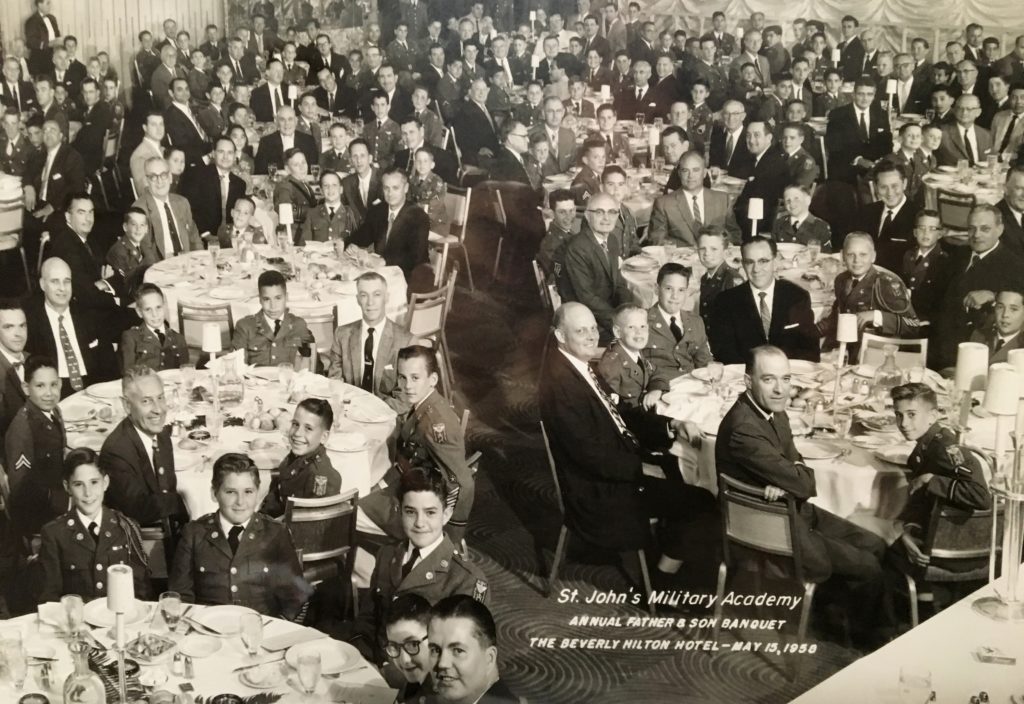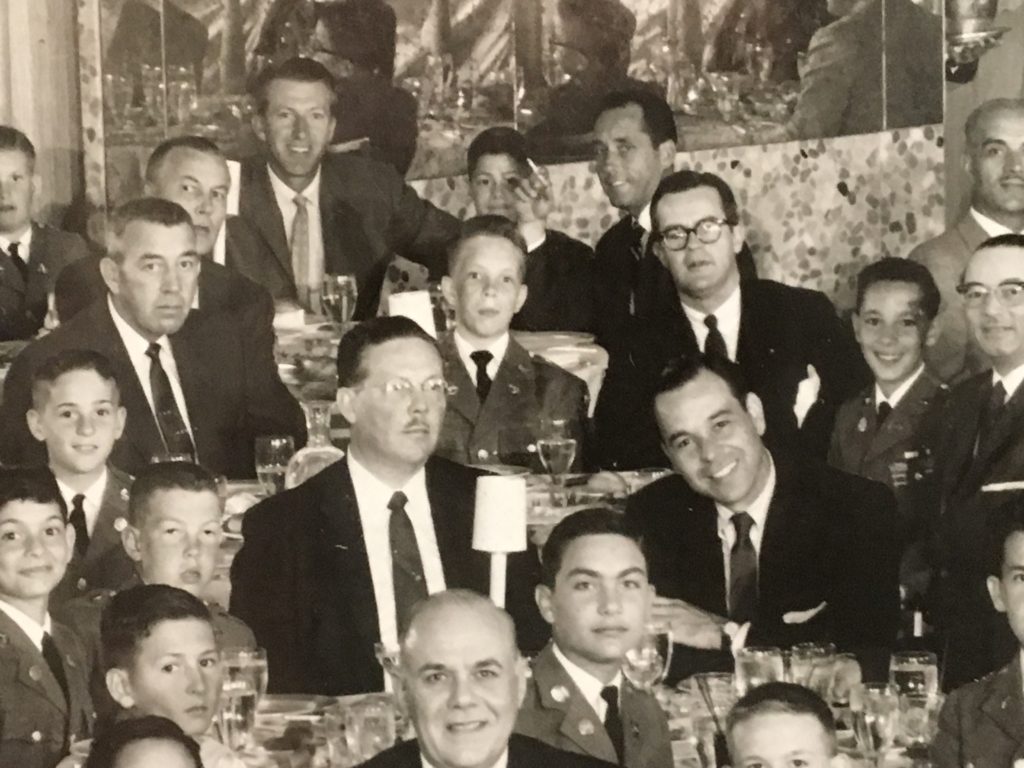
True story, every morning, I make the bed. (I also wash my own laundry but that’s another story.)
Over the years, my wife has occasionally mentioned this to others at social functions, as if performing such tasks was due to some anomalous male genetic mutation. (The shocking truth is, most men routinely have made their beds and other chores before they were married.)
I learned this and other basic tasks while attending St. John’s Military Academy for two years. (The photo above is from the annual father and son banquet held at the Beverly Hilton Hotel in 1958. I’m left of center, waaaaay in the back.)
What has this got to do with ethics?
Frankly, I didn’t think much about it until I watched an interview with former SEAL commander and retired Admiral, William McRaven. Yes, the same Admiral McRaven who oversaw the SEAL raid on Osama bin Laden.
McRaven was interviewed last Friday on CBS This Morning about a book he recently authored, Make Your Bed: Little Things That Can Change Your Life…And Maybe the World. The book is based on a graduation speech McRaven gave Texas students in 2014.
The core of McRaven’s speech is simply this:
“If you can’t do the little things right, you’ll never be able to do the big things right. And if by chance you have a miserable day, you will come home to a bed that is made; that you made. A made bed gives you encouragement that tomorrow will be better. So, if you want to change the world, start off by making your bed.”
Here are the key points from McRaven’s book, along with some correspondent ethical aspects.
– Start your day with a task completed. (Responsibility, ethicist Michael Josephson points out, “includes the pursuit of excellence especially when others rely upon our knowledge, ability or willingness to perform tasks effectively.”)
– You can’t do it alone. (Faced with an ethical issue, be willing to consult others in whom you trust and respect.)
– Only the size of your heart matters. (The ethical value of caring embodies both compassion and The Golden Rule.)
– Life’s not fair. Drive on! (All of us face unfairness at some point in our lives. The ethical person strives to be fair by scrupulously employing open and impartial processes for gathering and evaluating information for a decision. We should always strive to pursue personal excellence through diligence, maintaining good work habits, and endeavoring to improve.)
– Failure can make you strong. (Perseverance, another aspect of the pursuit of excellence, demonstrates a commitment to finish what we start and keep going, rather than surrender to obstacles.)
– You must dare greatly. “Life is a struggle,” McRaven writes, “and the potential for failure is ever present, but those who live in fear of failure, or hardship, or embarrassment, will never achieve their potential. Without pushing your limits, without occasionally sliding down the rope headfirst, without daring greatly, you will never know what is truly possible in your life.” (From an ethical perspective, we must exercise integrity and the moral courage to place principle over expediency or self-interest. “To dare greatly” requires consistency between words and actions.)
– Stand up to bullies. (An ethical person is willing to stand up to any observed injustice, and always seeks to minimize harm to others in their decision-making.)
– Rise to the occasion. (The ethical values of civic virtue & citizenship call upon us to go beyond our own self-interests and demonstrate an obligation to contribute to the overall public good.)
– Give people hope. (While one should always strive to be fair, never forget the key tenet of caring is a genuine concern for the interests of others.)
– Never, ever quit! (Persist, despite obstacles.)

That’s me, center, top, next to my step-father, holding the cigarette.
Wednesday – Comey v. Trump
Comments











